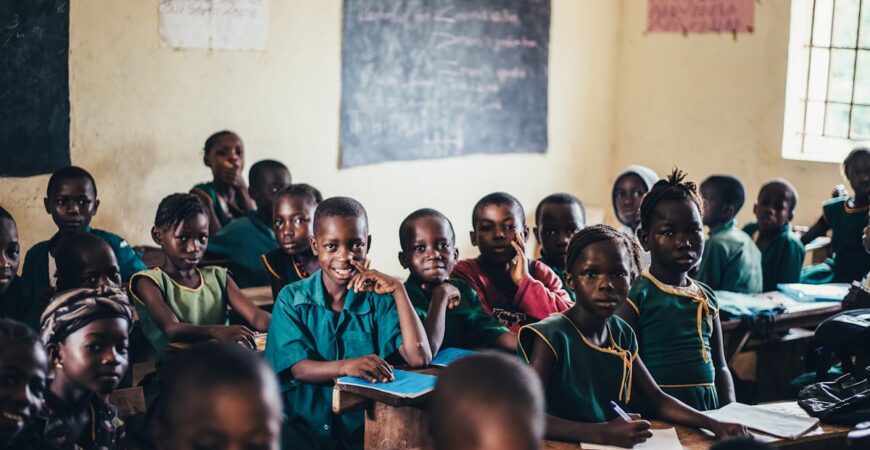Strengthening Capacity to Address Out-of-School Children in South West and South East Nigeria
On December 18-19, 2024, Akure, Ondo State, hosted a pivotal two-day workshop that sought to address the persistent challenge of out-of-school children in South West Nigeria. This capacity assessment, organized in partnership with FCDO-PLANE Nigeria and the National Institute of Educational Planning and Administration (NIEPA), convened key stakeholders, including representatives from the Federal Ministry of Education, Almajiri Commission of Nigeria, DAWN Commission,, State Universal Basic Education Boards, and education officials from Ekiti, Ondo, Ogun, Oyo, and Osun States.
The workshop’s primary objectives revolved around assessing the capacity of state education ministries and agencies, identifying gaps in institutional frameworks, and fostering participatory engagement to enhance equitable access to quality education for out-of-school children. These goals align with Nigeria’s broader commitment to ensuring that all children have access to education, a challenge underscored by the staggering figure of over 10 million out-of-school children nationwide—the highest globally.
The Urgent Need for Action
The out-of-school children phenomenon in Nigeria remains a complex issue, driven by interrelated factors such as poverty, insecurity, cultural barriers, and inadequate educational infrastructure. According to UNICEF, over 60% of out-of-school children in Nigeria are concentrated in northern regions, but the South West and South East also face unique challenges, such as high urban migration rates, social inequalities, and inadequate policy implementation.
The Akure workshop provided a platform for data-driven discussions and collaboration, underpinned by both quantitative and qualitative research. Key informant interviews and surveys revealed critical challenges, including inconsistent data on out-of-school children, insufficient funding, bureaucratic inefficiencies, and the absence of continuity in government policies. These barriers not only perpetuate inequities but also undermine the effectiveness of ongoing interventions.
Insights and Recommendations from the Workshop
Participants underscored the need for a multi-sectoral approach to address the challenges facing out-of-school-children in Nigeria. Effective collaboration among government entities, community leaders, religious organisations, and civil society emerged as a recurring theme. Moreover, the discussions yielded several actionable recommendations, including:
- Improved Data Collection and Management: Accurate, consistent, and disaggregated data is vital for evidence-based planning. Establishing robust systems for tracking out-of-school children can guide targeted interventions.
- Enhanced Community Sensitisation and Advocacy: Engaging community leaders, parents, and local influencers is critical to reducing cultural and societal barriers to education. Advocacy campaigns should emphasize the transformative power of education and address stigmas associated with formal schooling.
- Inclusive Education Policies: Participants highlighted the importance of addressing the needs of children living with disabilities through inclusive curriculum design, teacher training, and accessible infrastructure.
- Alternative Education Pathways: To cater to diverse learner needs, stakeholders recommended scaling vocational education, apprenticeship programs, and flexible learning options.
- Strengthened Political Will: Long-term solutions require unwavering commitment from policymakers to prioritize education in national and state budgets, ensure policy continuity, and tackle corruption in the sector.
- Increased Funding for Education: Nigeria’s current allocation to education, which hovers around 6% of the national budget. Participants stressed the need for increased investment to improve school infrastructure, teacher recruitment, and instructional materials.
Collaboration as a Catalyst for Change
The workshop emphasised that solving the out-of-school children crisis requires partnerships that cut across sectors. For instance, the role of the private sector in providing financial and technical support, as well as the involvement of NGOs in grassroots mobilization, cannot be overstated.
Additionally, successful models from other regions and countries could serve as a blueprint. For example, India’s Education for All (Sarva Shiksha Abhiyan) initiative, which combines government funding, community engagement, and targeted interventions, significantly reduced out-of-school rates.
The Path Forward
As participants departed the Akure workshop, one sentiment resonated: addressing the out-of-school children challenge is a shared responsibility. The workshop not only provided actionable insights but also fostered a sense of urgency and unity among stakeholders.
By identifying capacity gaps and building the competencies of state education ministries and agencies, the groundwork for sustainable change is established. However, consistent follow-through, transparent monitoring, and an unwavering commitment to equity are essential for translating these recommendations into tangible outcomes.
Education remains a powerful tool for social transformation. As Nelson Mandela famously said, “Education is the most powerful weapon which you can use to change the world.” By addressing the barriers that exclude millions of Nigerian children from classrooms, the nation can unlock their potential and pave the way for a brighter, more inclusive future.

